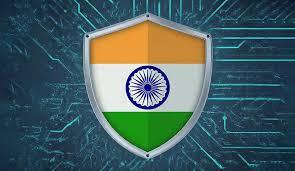In the labyrinthine and highly specialized Indian cybersecurity market, no company can succeed in isolation; partnerships and alliances are the lifeblood of the entire ecosystem. A deep analysis of India Cyber Security Market Partnerships & Alliances reveals that a vendor's success is less dependent on its standalone product features and more on the strength and breadth of its partner network. These alliances—ranging from deep technical integrations and go-to-market agreements with IT service giants to collaborations with government agencies and educational institutions—are the essential framework for delivering security solutions at scale across a vast and diverse nation. The market's phenomenal growth makes this ecosystem-centric approach an absolute necessity. The India Cyber Security Market size is projected to grow USD 51.88 Billion by 2035, exhibiting a CAGR of 14.85% during the forecast period 2025-2035. To effectively navigate this expansion, technology vendors must master the art of partnership, leveraging the scale, reach, and expertise of local players to implement their solutions and build trust in the market.
The most critical and impactful partnerships are the strategic alliances between global cybersecurity technology vendors and the major Indian System Integrators (SIs) and Managed Security Service Providers (MSSPs) like TCS, Infosys, Wipro, and HCL. These SIs are the gatekeepers to the vast majority of large enterprise accounts in India. They are the ones designing the security architectures, executing the implementation projects, and, increasingly, managing the 24/7 security operations for their clients. For a global vendor like Fortinet or CrowdStrike, having a deep partnership with these SIs is paramount. This involves creating dedicated partner programs, providing extensive training and certifications to thousands of their engineers, co-investing in joint solution development, and providing dedicated support. By making the SIs a successful and profitable extension of their own team, the technology vendors effectively multiply their sales force and implementation capacity by a factor of thousands, ensuring their products are designed into the largest and most complex digital transformation projects in the country.
Beyond the crucial SI alliances, a broader network of partnerships is vital for comprehensive market coverage. This includes building a strong two-tier channel with a network of national distributors and thousands of regional Value-Added Resellers (VARs) who can cater to the mid-market and SMB segments. Technology alliances are also critical. Cybersecurity vendors must ensure their products integrate seamlessly with the major cloud platforms (AWS, Azure, GCP) and with other security tools through open APIs, enabling an automated and orchestrated security posture. A new and increasingly important area of partnership is with the Indian government and its various agencies. This includes collaborating with organizations like CERT-In (the Indian Computer Emergency Response Team) on threat intelligence sharing, and with government bodies on public sector security projects and smart city initiatives. Furthermore, partnerships with academic institutions to develop cybersecurity curriculum and labs are a long-term strategic investment in addressing the critical skills gap, which in turn helps to grow the entire market. The vendors who are most successful at building and nurturing this multi-layered ecosystem of partners will be the ones who achieve sustained leadership in the Indian market.
Top Trending Reports -
US Enterprise Communication Infrastructure Market



